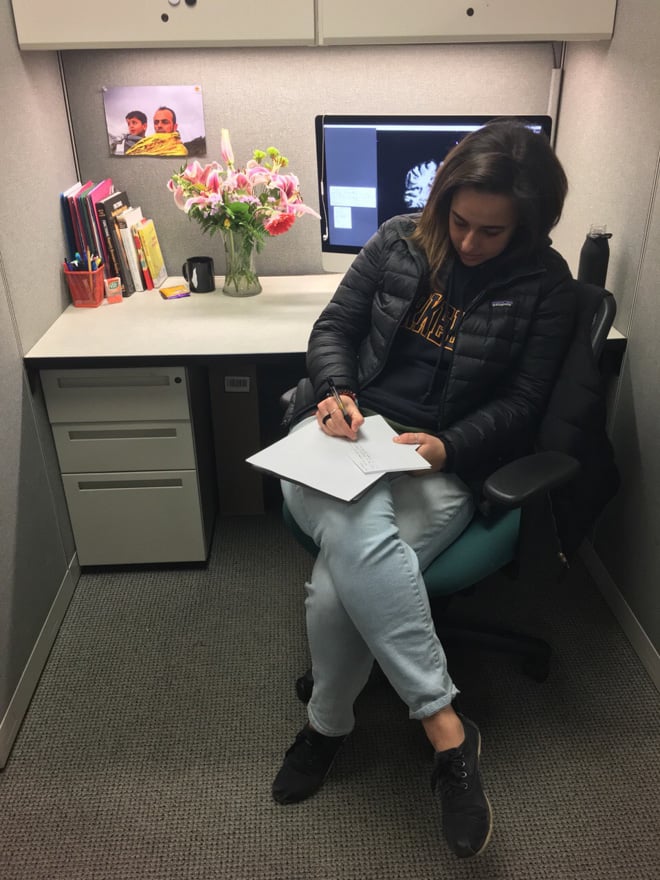
Laila Soudi, a mental health researcher at the Stanford School of Medicine, has initiated a letter-writing campaign for Syrian refugees in response to President Trump’s recent executive order banning immigration from seven Muslim-majority countries. Soudi’s aim is to engage the Stanford community in writing and sending letters of solidarity to Syrian refugee children and adolescents.
Soudi, a Syrian researcher in the School of Medicine’s psychiatry department, says that her personal encounter with of a young Syrian refugee in Jordan first inspired her to take action.
“[He] really wanted to come to Stanford and was asking about Stanford and studying computers. He was in Jordan, and all of a sudden he recognized that he was denied entry and couldn’t come to the U.S.,” Soudi said.
The new executive order, which some have dubbed a “Muslim ban,” was issued late January with the intent to halt the entry of potential migrants traveling from any of the seven countries included. Among the migrants are refugees from the ongoing Syrian civil war.
In response to the ban, Soudi and a group of undergraduate students developed a letter-writing initiative that invites all members of the Stanford community including students, faculty and staff to compose letters for young Syrian refugees.
The soon-to-be-launched campaign calls on participants to write both digital and handwritten letters that will be translated into Arabic and sent to a chapter of the nonprofit organization CARE for distribution in Jordan, where a large portion of Syrian refugees are now based.
CARE is a nonprofit working with host country governments and international and local organizations to help refugees and host communities. CARE is handling the logistics of distribution in addition to filming a promotional video to kickstart the campaign. Soudi and her team are in the preliminary stages of planning a campus-wide event to bring together Stanford community letters for mass letter-writing. The campaign is also awaiting administrative approval of a website designed for digital letter composition.
According to Soudi, the goal of the campaign is to show solidarity and support. Soudi envisions it as a community effort to demonstrate to refugees stranded in Jordan that the executive order is not representative of Americans.
“We want you here, and we’ll do everything we can to support you,” Soudi said, directing her message to future letter recipients.
The letter-writing initiative is one of many efforts on campus aimed at addressing the humanitarian crisis and Trump’s ban. For instance, Director of the Center for Innovation in Global Health Michele Barry has also established a refugee health working group. Soudi described the working group as an effort to bring people from across campus together to tackle refugee issues and use Stanford’s resources to help alleviate the crisis.
Through personal efforts such as writing letters in addition to efforts on the University’s part, Soudi hopes to raise awareness of the Syrian refugee crisis.
“The trick is to stay informed, is to continue to raise awareness, is to continue to pressure our government, is to accept refugees [and] is to call our senators,” Soudi said.
Contact Matt Nissen at mnissen1 ‘at’ stanford.edu.
